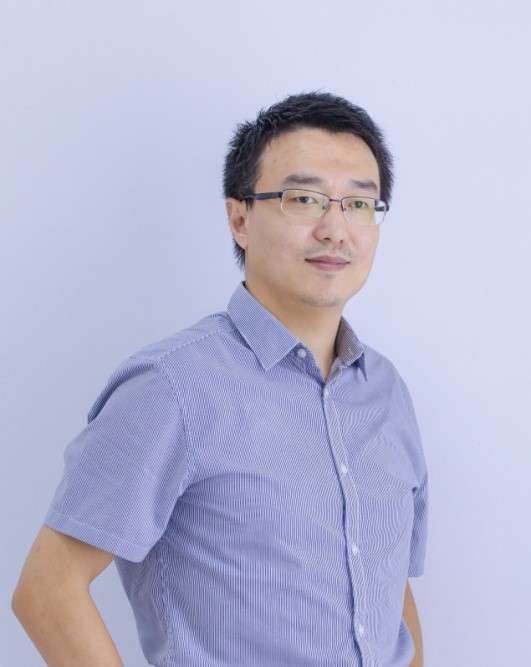一、承辦院系School/Department host:
深圳國(guó)際研究生院
Tsinghua Shenzhen International Graduate School
生物醫(yī)藥和健康工程研究院
Institute of Biopharmaceutical and Health Engineering
二、挑戰(zhàn)主題Theme:
微生物合成工廠的應(yīng)用和挑戰(zhàn)
Applications and Challenges of Synthetic Biology in Microbial Cell Factories

三、導(dǎo)語/背景情況概述Background:
通過合成生物學(xué)技術(shù),改造微生物基因元件和代謝環(huán)路,可以實(shí)現(xiàn)化合物的大規(guī)模綠色生物合成,將極大變革傳統(tǒng)的化工產(chǎn)業(yè)和微生物發(fā)酵工業(yè),近年來在化工、醫(yī)藥、能源等領(lǐng)域廣泛應(yīng)用。但是,生物合成在科學(xué)技術(shù)、成本、倫理、安全和法規(guī)上還面臨著很大挑戰(zhàn),比如底盤細(xì)胞的構(gòu)建,安全性如何保證等等。
希望通過本次比賽,經(jīng)過跨學(xué)科領(lǐng)域的思考,尋找應(yīng)用微生物合成工廠面臨廣泛挑戰(zhàn)的合理解決方案
With the emerging technology of synthetic biology, we can design and synthesize genetic circuits to facilitate mass and green production of molecules, which has been widely used in the industry of chemical engineering, biopharmaceuticals and energy, and will revolutionize the traditional industry. However, the application has faced great challenges, including in terms of science and technology, cost, ethics, safety and laws. For example, how can we design and construct a chassis cell? How can we ensure safety?
In this Hack, we aim to think in a comprehensive and interdisciplinary manner to search for solutions for the application of synthetic biology in microbial cell factory.
四、該領(lǐng)域比較關(guān)注的問題Our key topics of interest:
微生物合成工廠應(yīng)用面臨的科學(xué)和技術(shù)問題
Scientific and technological issues of synthetic biology in microbial cell factories
合成生物學(xué)應(yīng)用的安全和倫理問題
Safety and ethics issues in synthetic biology
五、主講老師Hack Leader

Dr. Lan Ma received a B.Sc. degree in genetics from Wuhan University, Wuhan, China, in 1987, the M.Sc. degree in immunology from Peking University, Beijing, China, in 1993, and the Ph.D. degree in stem cell biology from the Chinese Academy of Sciences, China, in 2003. She was associate professor at Yunnan University from 2000 to 2005 and Tsinghua Shenzhen Graduate School from 2005 to 2011. Since 2012, she has been a professor at the Tsinghua Shenzhen Graduate School. Her research interests include stem cell biology, nano-biomedicine, and vaccine & antibody bio-engineering.

LIU Xiao received his bachelor and master degree in Nanjing University in China majoring in chemistry and molecular biology, respectively. He received a PhD degree in University of Copenhagen, Denmark. He joined as an associate professor at the Tsinghua University Shenzhen International Graduate School in 2020. His current research interests include system human immunology with an emphasis on deciphering the heterogeneity and multimodality of the human immune microenvironment.
六、導(dǎo)師Mentors

Yan Zhao is currently an assistant researcher of the Institute of Biomedical Health Technology and Engineering, Shenzhen Bay Laboratory. She was awarded a Ph.D. degree by Shanghai Institute of Applied Physics, Chinese Academy of Sciences in 2017. She then engaged in postdoctoral research in Prof. Chunhai Fan’s group. Her research interests generally concern the biological applications of DNA nanotechnology. She specializes in the design and assembly of framework nucleic acid nanomachines, functionalized nucleic acid modification, bioimaging and disease diagnosis and treatment based on DNA nanostructures. She has published academic papers in Angewandte Chemie International Edition, Nano Today, ACS Applied Materials and Interfaces, Nature Communications and other high-level journals. She has been funded by the China Postdoctoral Science Foundation. She also participated in several National Natural Science Foundation projects and National Key Research and Development programs.

Taosha Li is the secretary-general of the Belt and Road Life Science Economy Alliance (LSEA) and Life-Tech Industry Alliance. She was the Science and Technology Partner and the head of policy and regulations of Miracle Light (Shenzhen) Co., which is an incubator invested by companies including BGI, Green Pine Capital Partners, and Cowin Capital. Taosha Li was a project leader in the Shenzhen Leaguer Angel Venture Capital Management Co., Ltd. - a very famous angel venture capital company in China. Taosha Li was a District Sales Manager in Life Technologies - a Global Top Bio-company - in charge of the business of SIB in Southern China. Taosha Li was a team leader of samples collection in Southern Chinese pedigree for the 1000 Genomes Project. She spent 5 years studying and working in UK. During that time, she graduated with an Msc from the Clinical Oncology Department of the University of Nottingham in 2004, and opened and managed a Traditional Chinese Medical Clinic and a training service company in UK. Taosha Li gained an MB of Clinical Medicine in 2002.
七、承辦院系簡(jiǎn)介
生物醫(yī)藥與健康工程研究院關(guān)注健康與工程技術(shù)融合,用以應(yīng)對(duì)健康中國(guó)及深圳生物科技產(chǎn)業(yè)面臨的實(shí)踐和發(fā)展挑戰(zhàn)。學(xué)院有國(guó)際一流交叉學(xué)科中心,健康產(chǎn)業(yè)關(guān)鍵核心技術(shù)平臺(tái),設(shè)有藥學(xué)、生物工程、生命科學(xué)、醫(yī)學(xué)、化工、生物材料等共享設(shè)備中心。目前學(xué)院聚焦五大方向:健康工程、制藥工程、疫苗工程、細(xì)胞工程、生物大數(shù)據(jù)。
The Institute of Biopharmaceutical and Health Engineering (iBHE) explores the frontiers of health technology and engineering for human wellbeing to meet the practical needs and long-term development strategy for the building of a “Healthy China” and promoting Shenzhen’s biotechnology industry. The Institute builds international first-class disciplines for providing comprehensive scientific solutions and awareness-based revolutionary technologies for human health and happiness by integrating pharmaceutical engineering, bioengineering, life sciences, medical sciences, chemical engineering, process and system engineering, materials engineering and other advanced discipline clusters. iBHE focuses on the development of five main aspects: health engineering, pharmaceutical engineering, vaccine manufacturing, biomedical big data, and cell engineering.